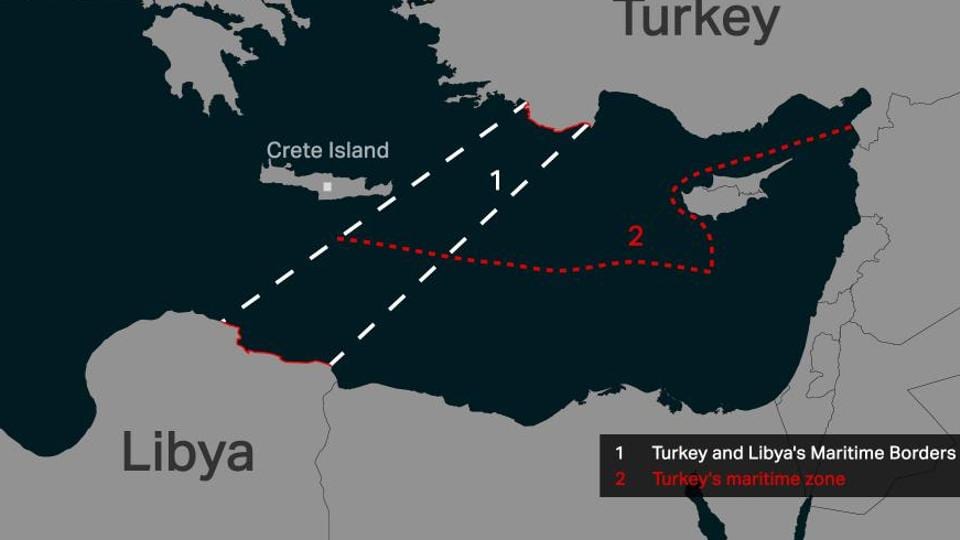By Yahya Bostan, Daily Sabah
The governments of Turkey and Libya are strengthening their cooperation in the Eastern Mediterranean. The two countries concluded two significant agreements on Nov. 27 in Istanbul. The first memorandum of understanding, which is the first deal that Turkey has made with one of its maritime neighbors in the Mediterranean, related to maritime jurisdiction.
Both countries’ parliaments ratified the agreement before submitting it to the United Nations. On the basis of that agreement, Turkey and Libya will declare their respective exclusive economic zones in the Mediterranean. What makes their agreement more significant is the energy dispute in the Eastern Mediterranean. Together with Libya, Turkey challenged the de facto situation that Greece, the Greek Cypriots, Israel and Egypt created. The Turks have also attained the right to conduct seismic research and drilling activities in designated areas.
The Turkey-Libya deal sent shockwaves through Athens, where the Greek government came under fire on the home front. Although President Recep Tayyip Erdoğan’s meeting with Greek Prime Minister Kyriakos Mitsotakis on the sidelines of the NATO leaders’ summit went well, it will be important to monitor the developments in Greece.
The second Turkey-Libya agreement relates to national security and the defense industry. Before the deal’s details became public, reporters asked President Erdoğan whether Ankara would consider deploying troops to Libya if that country’s legitimate government were to ask Turkey for military support. He said he would indeed authorize troop deployment to Libya if Tripoli asked for assistance.
Shortly after Erdoğan’s statement, the Turkish government submitted a copy of the security and military cooperation agreement with Libya to Turkish Parliament. I got a chance to read the full text, which includes important details. First of all, the agreement authorizes the establishment of a “Rapid Deployment Force,” which has law enforcement and military responsibilities, to promote peace and stability in Libya. Turkey pledges to offer training, advisory services, experience sharing, planning and equipment to that force.
At the same time, the deal enables Turkey and Libya to launch a joint defense and security cooperation office. On the invitation of the host country, the two nations agree to offer training and consultancy regarding the use of weapons systems and military equipment as well as conduct joint planning, experience sharing and educational activities for land, air and naval forces. In other words, the memorandum of understanding paves the way for comprehensive cooperation.
Perhaps one of the most important articles relates to the possibility of conducting joint military operations in addition to joint exercises. Accordingly, Turkey and Libya have seemingly agreed to work together on counter-terrorism, illegal immigration, the security of land, naval and air borders, narco-terrorism and anti-trafficking, and natural disasters.
Turkey cares about Libya’s stability. The rapprochement between the two nations will have a profound impact on the balance of power in the Eastern Mediterranean.









